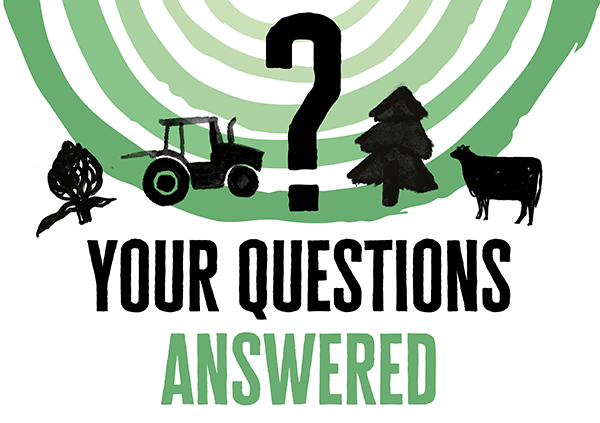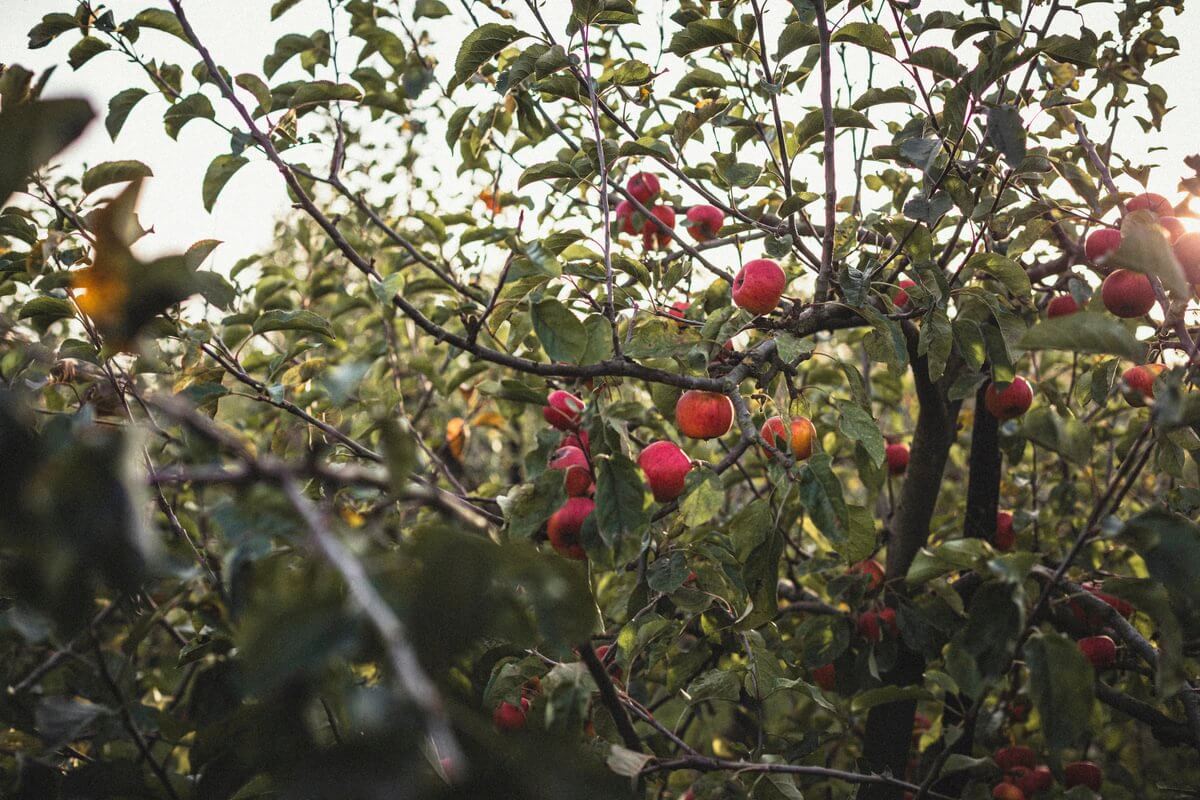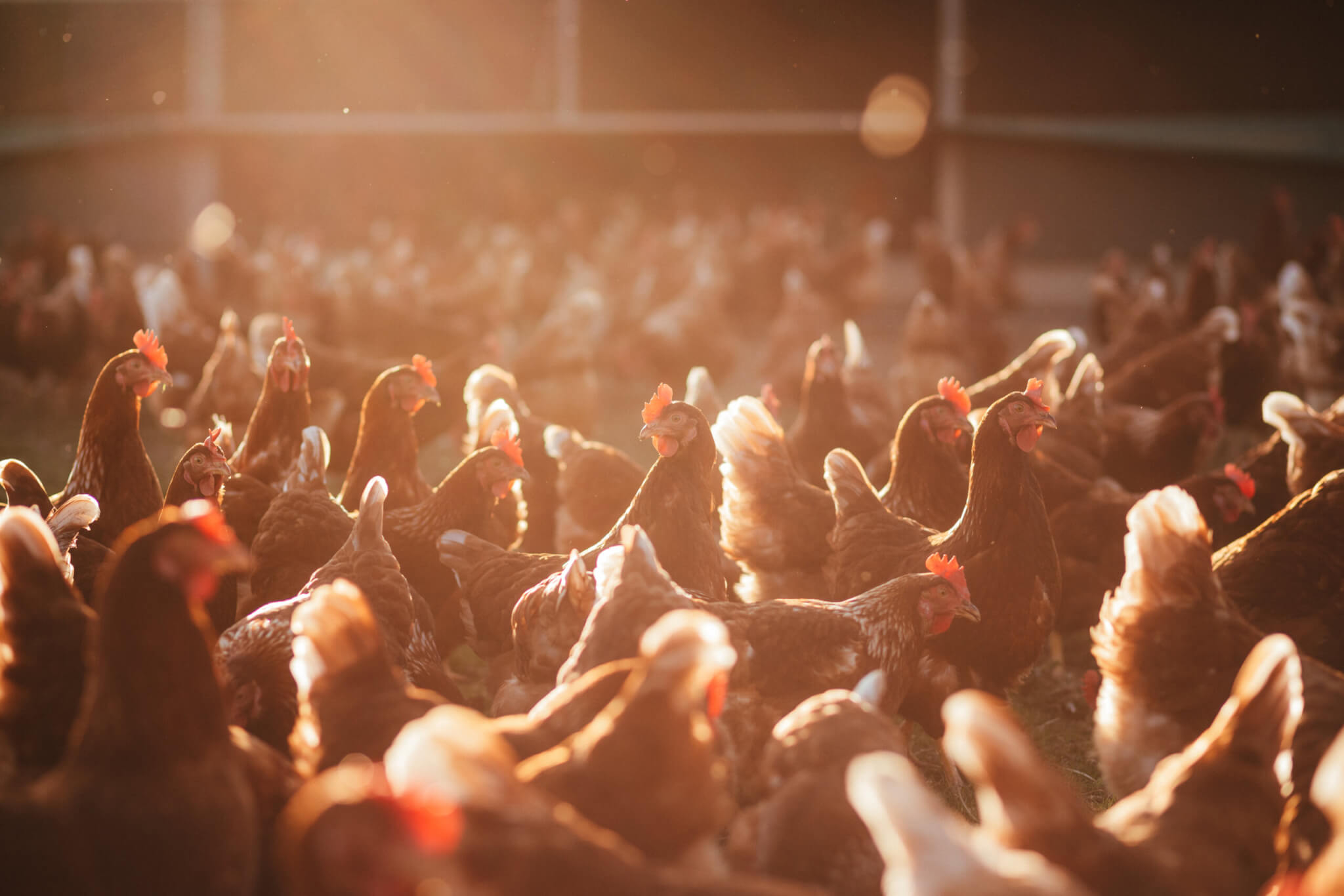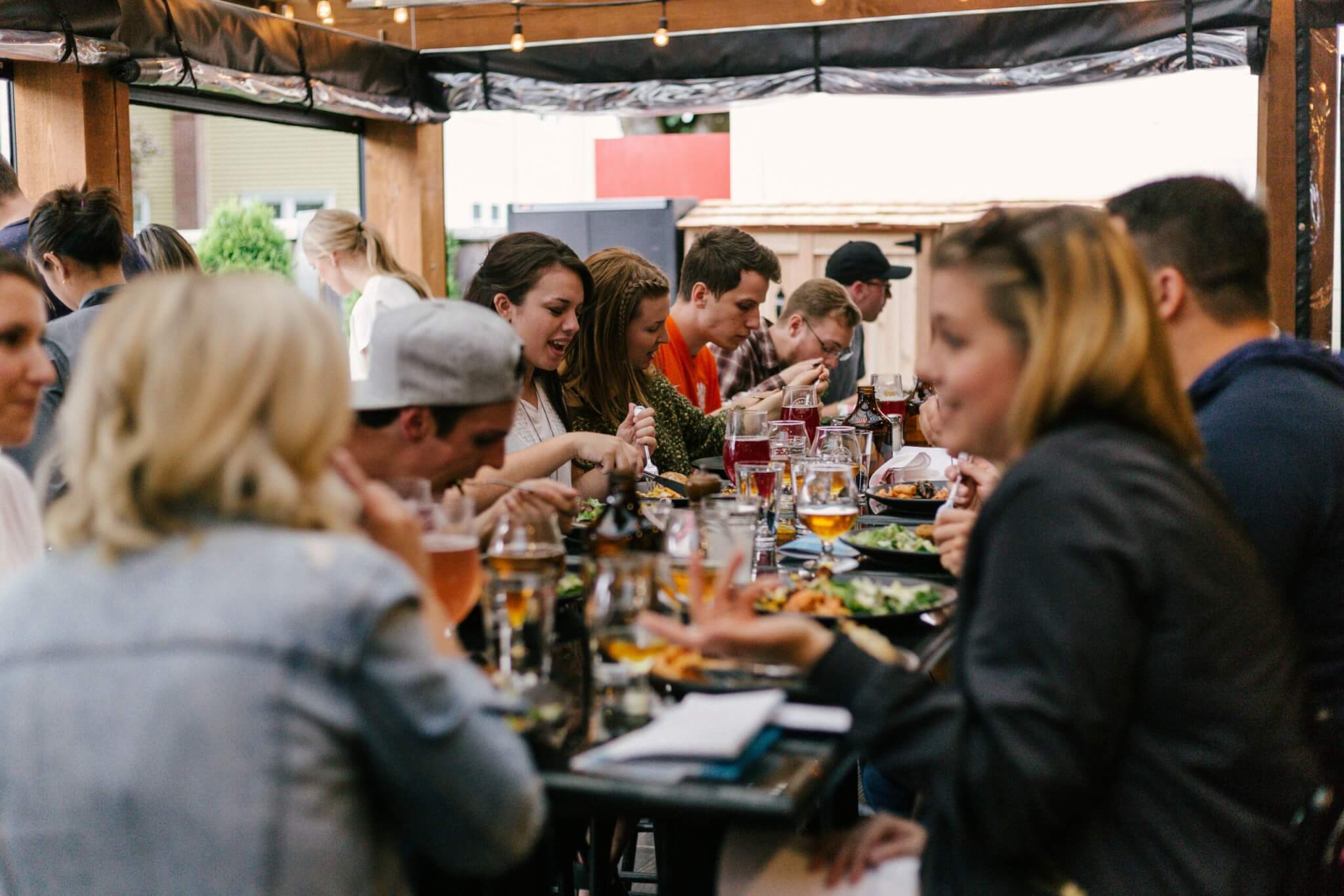Ever wondered what rewilding actually means? Or what’s the difference between grass-fed and organic? Or perhaps you’ve heard it’s good to cut down meat but don’t know why or how? It can be daunting and sometimes even impossible to make the best ethical choice, or navigate the greenwash that is out there in busy lives when you don’t always have the time to look into the detail.
Wicked Leeks is a community of like-minded readers, interested in sustainable food, ethical business and making a positive impact. In our last issue, we crowdsourced questions from our readers to put to the magazine’s team of expert writers, including Riverford founder Guy, Wicked Leeks editor Nina and others. With such a great response (see the Q&A write up), we’ve decided to make this into a regular feature.
Starting from September, we will select regular reader questions to answer and feature on the Wicked Leeks website. The questions you pose will also inform what articles, interviews and investigations we focus on for the future.
How to submit your question
Register below or login to comment and submit your question, on anything from organic food, plastic, farming politics, gardening or cooking.
To submit your comment, click here to register or login










Why is it taking so long to reduce single use plastics? I accept some products would be difficult to be repackaged in something more sustainable. However, many should be easy. Pasta, rice, tea spring to mind, and there are probably thousands more. So why is it taking so long to make packaging more sustainable?
That’s easy. Plastic is a waste byproduct of the oil refining business. If the oil companies hadn’t found a way to monetise it back in the 1950s-60s or whenever, then each oil refinery on the planet would have a mountain of black gunk piled high, probably higher than Everest. Luckily for the oil companies, there was enough surplus energy in the system to convert the waste to plastics
So you will never get rid of plastic until you get rid of oil refining, which means ending fossil fuel production, which by default will mean the end of this current set of living arrangements we misname civilisation and the reduction of the population to more sustainable levels of 500,000,000 worldwide.
https://consciousnessofsheep.co.uk/2018/02/19/the-plastic-trap/
Why is it more expensive for me to go to the refill shop, with my own container and fill it with, say liquid soap, laundry liquid etc. when those items are supplied in huge containers. It should be cheaper surely? Or is it just the place I use?! Last time I bought some liquid soap it cost three times as much as the hand soap I’d bought from the supermarket. I’m happy to pay more as I understand about economies of scale, but sometimes feel as though the prices are just too high to encourage people with little disposable income. Also – there is little info about the provenance of these refill products – what is in them, are they vegan, do they use sustainable palm oil etc.
unfortunately often when they say ‘sustainable palm oil ‘ they mean it will grow again after harvest… they don’t mention it is put on land that has been burned – killing all the wildlife, kept as a mono-culture and foisted on rural people by bullying governments – – themselves bullied by countries like China – I cycled across Thailand, Cambodia and Laos – and thousands of acres were being torched…. there is no good palm products coming from there…..
If you’re on a budget but really want to make a difference where’s the best place to start?
When I had very little money and 2 small children, I shopped locally at markets. I only bought what I needed and made simple soups, stews, flatbreads, rice dishes etc. If you’re near countryside, collect apples, blackberries etc for simple puddings and treats. I now make my own vegan bean burgers etc and I still make my own soups and breads. My grown up daughters cook from scratch for their children. It is much cheaper and much, much tastier….with almost no packaging at all. Win, win
Where can someone find beef/pork/chicken/lamb that has been reared on small scale permaculture farms?
Can you do a carbon footprint comparison between a veggie box and the same items from a supermarket shopping basket? Maybe include some extra goodies like strawberries , eggs, bread, samphire etc.
I’m not sure whether to suggest you include meat as well or compare it separately.
Hi Adam, have you tried calculating your carbon footprint?
I did mine.
It is much lower the fewer the food miles involved. It is much lower if you don’t shop in a supermarket. The supermarket footprints are massive for they import, transport, package, refrigerate, waste, over produce etc etc
Gerry, that sounds logical. What data are you using? There is quite a lot out there – although I’d love to see some from the supermarkets themselves?
I live in North-east London and struggle to avoid supermarkets. I would appreciate a list of organic shops and suppliers, including refill shops which seem to be totally absent in my neck of the woods. The nearest I can find is halfway to Southend on the A127.
I agree with DianaR that it seems counter-intuitive that refill shops are more expensive. Is there a valid reason for it?
Have you heard of the Better Food Traders network – check out the map on their website where you can zoom in on your area to see the ethical food retailers in the area. https://betterfoodtraders.org/find-a-better-food-trader/
There are a few members in North London, including Organiclea, Growing Communities, CropDrop, Fridge of Plenty,
Thank you, I’ll check those out.
So many questions: Which has the smaller carbon footprint – beans (or tomatoes or whatever) grown in Spain/Morocco/Kenya using natural light and flown to market, or those grown in the Netherlands, UK or northern France inside greenhouses. And why isn’t this information transparent?
And if you feel like dipping into transport, how many miles a year do you have to travel before you can justify converting your fleet to electric vehicles given the huge carbon emissions involved in making the batteries (and the rest of the vehicle)?
Is it right for us to use coir in bags of compost so that we can stop using our peat resources? Many countries it comes from have problems with food production and soil loss/deterioration themselves – why should they lose their own resource?
Should we be ending the relatively modern ‘garden centre’ model of cheap seasonal plants – piled high and sold in non-recyclable plastic? Would we be better going back to the old style ‘nursery’ where you ordered your bare rooted plants – grown in the field – and collected them in the autumn – which gave them time to settle in and grow well the following summer?
Should we aim for real content instead of fashion?!
I became interested in ethical issues when Greenpeace started, I set up and ran the Bournemouth Fundraising group 31 years ago. We were also one of Riverford’s first customers to have a veg box. Since .then though – exasperation. So little has changed. I’m beginning to think there cannot be a sustainable / ethical / environmentally friendly consumerist society while we still have a capitalist world. While it benefits big business to be unethical why should it change? Change has to come from governments but governments are run by corporations / big business. In you article it stated that 97% of people believe we are using too much plastic. So why do they go to the supermarket!!! Change has to come from the top. We need to influence a few important politicians….
How is the organic registration held accountable? How do I really know that my organic bananas are not being treated with chemicals etc. outside of the requirements?
Why are residents not informed when a field they live next to is about to be sprayed with pesticide?
Why aren’t there educational adverts on TV informing general viewers about where their food comes from, since this is such an important topic and affects everyone?
With the production of meat having a very high carbon footprint, is it not time for Riverford to consider following their ethical slogan of ‘Live life on the veg’ and abandon the sale of meat within their business?
What do you use mostly as fertiliser on Riverford farms?
I worry that the use of sewage farm slurry is considered to be organic fertiliser when most humans don’t eat well enough for there to be much goodness in it.
I am a little concerned that if I am using foil lined cartons for coconut milk, is there any aluminium in the foil lining which may be a contributing factor to dementia, as I am retired now but taking precautions against this. I have changed from tins of the milk to foil cartons. Foil lined cartons are everywhere it seems and seem very useful.
Now we have left the EU what payment schemes are replacing the EU ones for our farmers and how do they ‘push’ towards different types of farming…?
I have been wondering about how organic farming compares to vertical farming in terms of environmental impact and cost of production. Have you considered such farming methods at Riverford?
An increasing amount of packaging, including that from Riverford, is labelled as suitable for composting.
I live in a house with a small, low maintenance garden and no compost heap. The local authority’s green bins ban anything except garden waste (The ban also includes potato peelings and other raw vegetable waste.)
Is there any way I can avoid putting the compostable material in the general waste bin?
I’m interested to know more about the origins of the organic movement and how it all began? How has it adapted over time ?
Do you think London can ever be sustainable? If everybody in London bought Riverford veggie boxes, would there be enough land in England to farm?
Here’s another one: if the climate crisis worsens because we humans really don’t do enough to stop it, will it hit organic agriculture as hard as industrial, agro-chemical-based farming?
And another one: what do you think it will take or how long do you think it will be before the minorities in London start ordering veggie boxes, like Indian families, or working class people, or Afro-Carribeans?
When will Riverford meat be in more recyclable type containers
I refuse to buy anything wrapped in plastic as it has been proved that SUP leach phthalates and Bisphenols into the food. These chemicals have an oestrogenic effect causing disruption to our endocrine system.. Our poor old world and all life in it is suffering from plastic pollution. Time to ban SUP? It is causing ecocide.
But definitely time to stop buying fluffy toys made from plastic polyester etc for our children. They inhale the plastic microfibres. Ditto plastic toys, cutlery and cups and clothing etc.
Hi
Just wondering (as a non vegetarian as it happens). With the move to feeding farmed insects to livestock to reduce soy use, whether that means eggs are strictly no longer suitable for vegetarians?
Farmers on the whole are price takers and not price setters, those that mange to get away from that business model tend to move closer to their customer base and can charge more. Food, though is still too cheap and supermarkets have hooked their customer base on inexpensive imported with lower standards of production to hold down the price of domestically produced goods. how do we wean the British public off this downward spiral to accept higher prices for better quality more environmentally aware, locally grown produce? Will supermarkets change their business model or will food shoppers change their habits and demand and make the supermarkets behaviour change?
How can farming be part of the solution to soil degradation? What does soil-friendly farming look like? And how can it be done sustainably for the planet AND farmers’ livelihoods?
With all the persuasive marketing around oat and nut milks it’s hard to know what’s fact and what’s marketing spiel. Is there a way to compare the ethics, environmental impact and health benefits of full fat organic cow’s milk and a comparative oat milk? I want to make the right choice for my health, the planet and a good price for farmers, is organic milk from the supermarket the right way to go?
I listen to what Dr Michael Greger and Dr Neil Barnard and others or the Plant Based Health Professionals if you want something British on the subject of all dairy. Made me think!
What was the discussion about Anthony? What did it make you think about?!
How would a food production system look if we could start afresh knowing what we know now? Would livestock be part of the structure? Would we still import from all over the world? Would pesticides and nitrogen based fertiliser exist? Given that we still have to feed the same populations that exist currently.